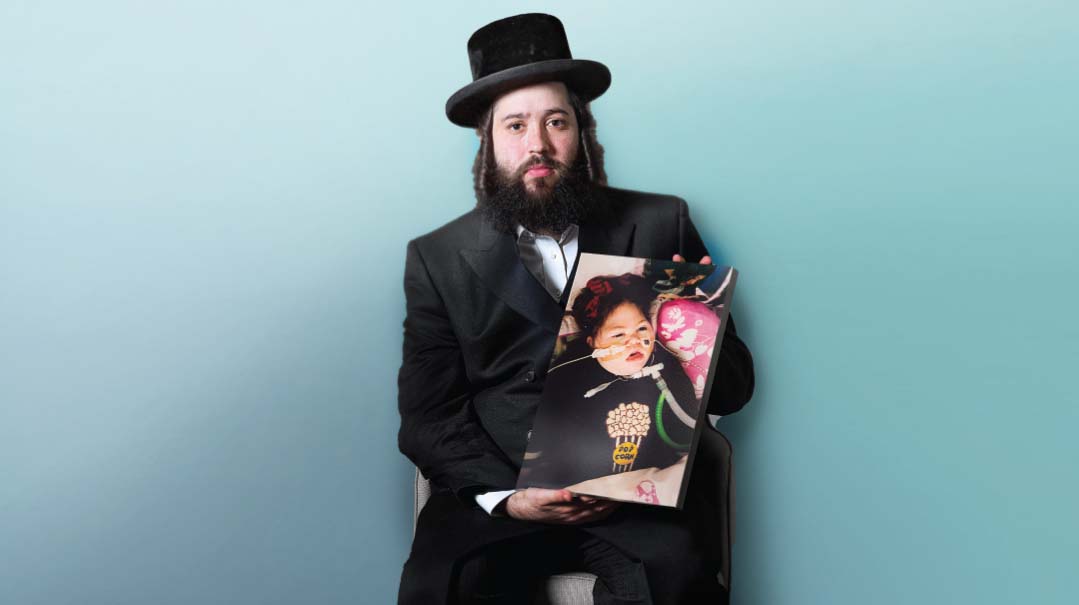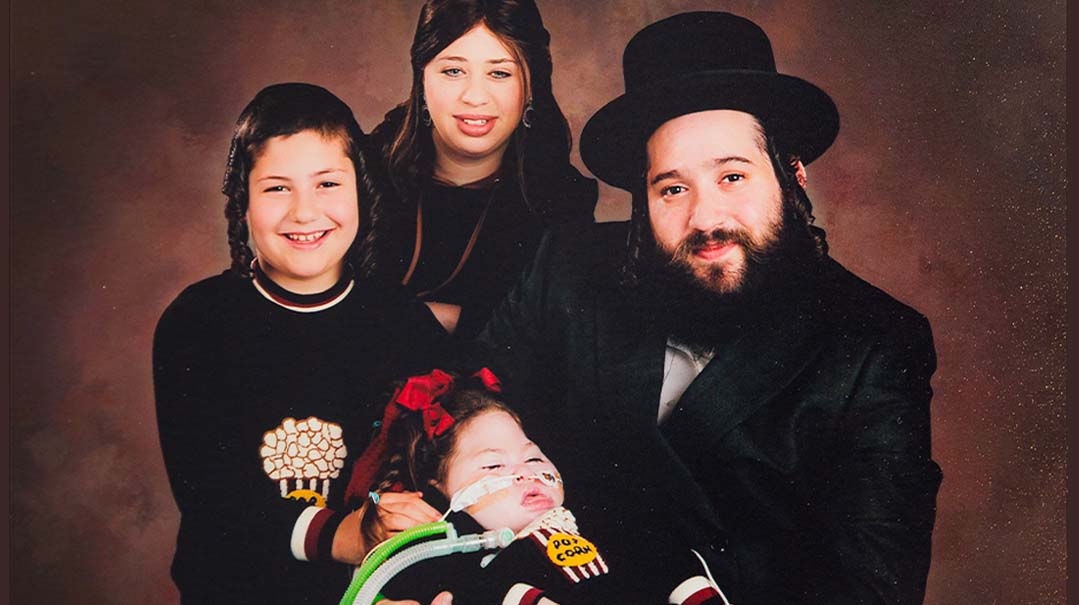A Gift Called Alta

The courts relegated her to death. But Avrohom Fixsler kept battling to give his daughter another day

Photos: Elchanan Kotler
There’s a small album that Avrohom Fixsler has kept close at hand for the past few weeks.
From between the cream-leather covers, a young chassidishe family looks out at the world. The proud mother stands behind her eight-year-old son, who’s all sweetness and perfectly curled peyos. The father holds a daintily-dressed toddler on his knee. Only a hint of sadness touches both parents’ smiles as they preserve this family moment.
It’s those smiles that make the glossy photos so painful.
Because the toddler is two-year-old Alta Fixsler, the little girl who became a household name thanks to her parents’ desperate struggle to keep her alive in the face of a remorseless British medical establishment. The smiles mark some of the only moments of togetherness that the family ever experienced. And the images — taken just before her ventilator tubes were removed — are a visual diary of the little girl’s last hours on earth.

More than two weeks after the shutter clicked to record those scenes, Avrohom and Chaya Fixsler answer the question that seems to burst from the album they hold. “When you believe that someone else, the Eibeshter, is making every decision,” they say, “you get a sense of relief.”
The Fixslers, together with their son Hershy, are still in Jerusalem, far from their home of the last seven years in Manchester, UK. They traveled there for her burial and are now waiting for Alta’s shloshim to end their current twilight zone.
In the quiet of their temporary residence, they relive the medical and legal battle that was their daughter’s existence. The description of those final weeks and last hours of her life make for heartrending listening, as they speak for the first time about the wait for the “death sentence” to be carried out.
“I’ll never forget those two weeks,” says Avrohom Fixsler. “We couldn’t eat, and we couldn’t sleep, and because of the judge’s gag order, we couldn’t share what we were going through.”
There’s a complex dance going on in the couple’s minds: on the one hand acutely aware that every stage was dictated by a Higher Power; at the same time, constantly questioning whether anything could have been done better and determined to share their experiences with others who face similar situations.
They’re also conscious of how they were changed by the crucible that they endured.
“This album is our last physical link with Alta,” says Avrohom Fixsler, the intensity of his conviction belying his 29 years. “But we take with us the message that she left. Children are a gift from Hashem — we need to love our kids as they are.”
Oops! We could not locate your form.







